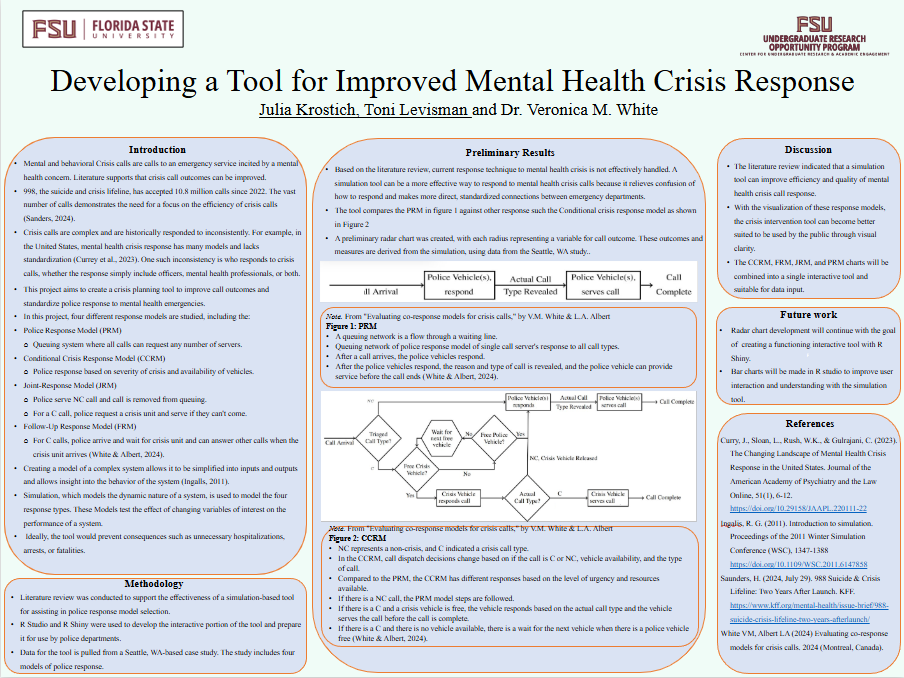Research Symposium
25th annual Undergraduate Research Symposium, April 1, 2025
Julia Krostich Poster Session 1: 9:30 am - 10:30 am/ Poster #141

BIO
My name is Julia Krostich, and I am a second-year pre-nursing student at Florida State University, originally from Lake Worth, Florida. I aspire to become a nurse, and involvement in research has been a beneficial experience. I have learned a lot about police response to mental health crises and am interested in continuing this research to create a tool to improve the efficiency of the intervention. With an interest in mental health, I understand the importance of having accessible systematic tools for users.
Developing a Tool for Improved Mental Health Crisis Response
Authors: Julia Krostich, Dr. Veronica M. WhiteStudent Major: NFA-Nursing
Mentor: Dr. Veronica M. White
Mentor's Department: Industrial and Manufacturing Engineering Mentor's College: FAMU-FSU College of Engineering Co-Presenters: Toni Levisman
Abstract
Police response to mental health crisis calls can lead to adverse outcomes. A crisis call is a call to an emergency service during an emergency inflicted by a mental health concern. This project aims to develop a simulation-based tool, which models the dynamic nature of police response based on user inputs to evaluate their system performance in different crisis response models. The tool aims to improve the planning of response to crisis calls and improve mental health outcomes. Ideally, it would prevent consequences such as unnecessary hospitalizations, arrests, or fatalities. A literature review of existing attempts to improve police response to mental health crises was conducted to improve understanding of the benefit of the simulation tool. Data visualization was used to interpret data from a Washington-based case study. A user interface for the tool is in development for the use of interaction by potential users. Based on our preliminary literature review, it is likely that the tool would improve mental health crisis call outcomes. Ideally, the tool would assist in deciding the most effective call response model. Future honing could mold the tool to specific community conditions as well as improve user interaction.
Keywords: Mental health, police, emergency, tool, crisis response, queue

